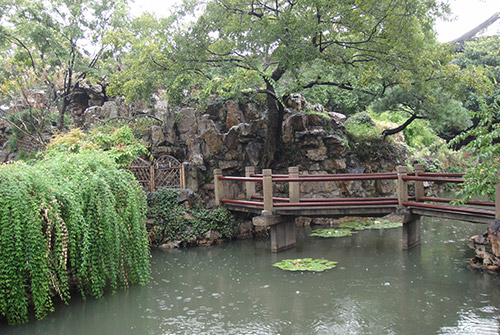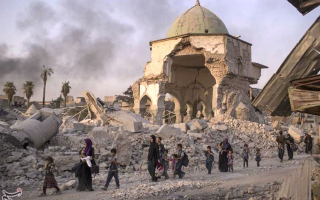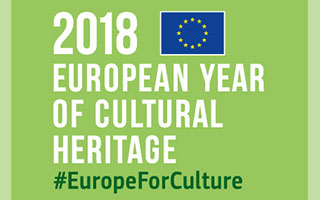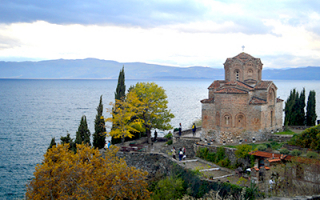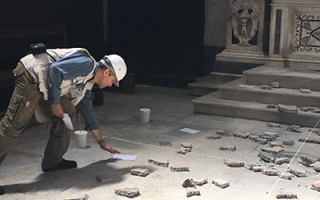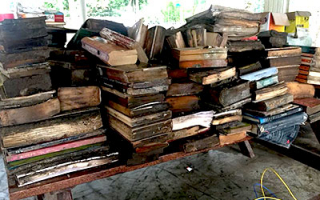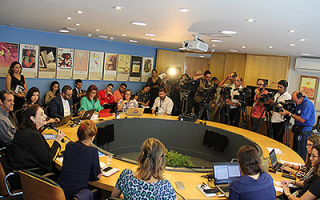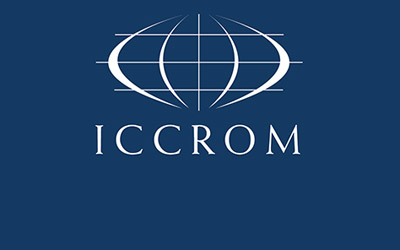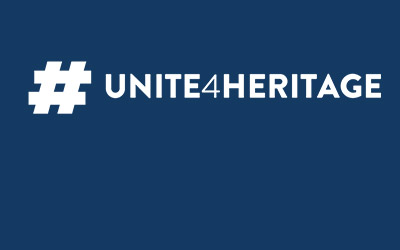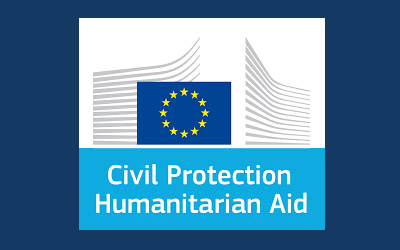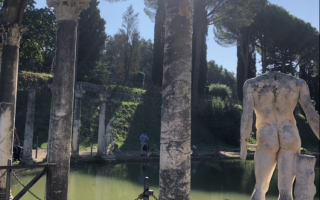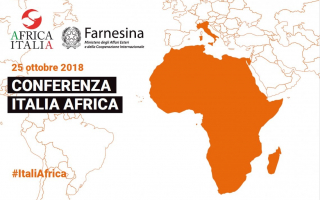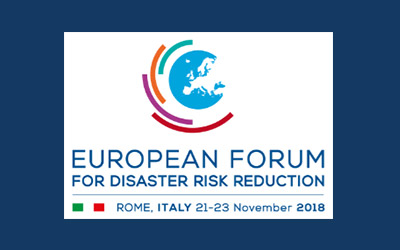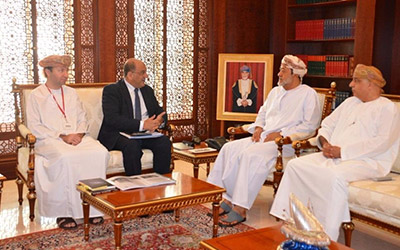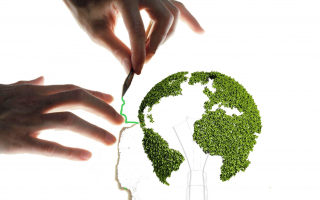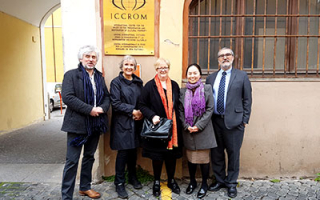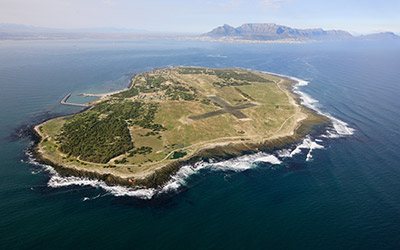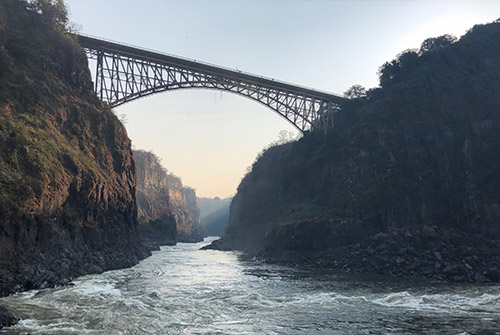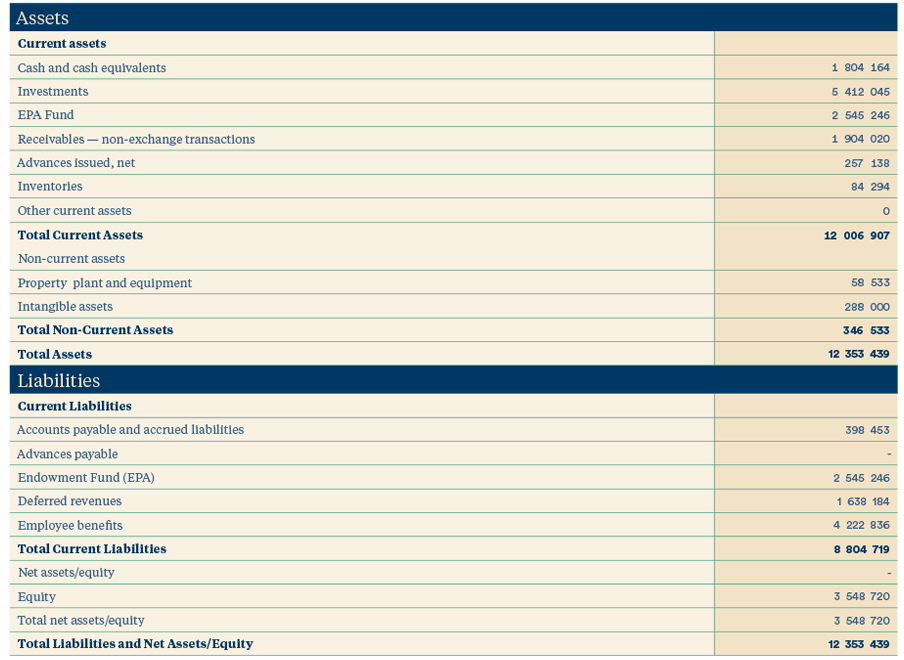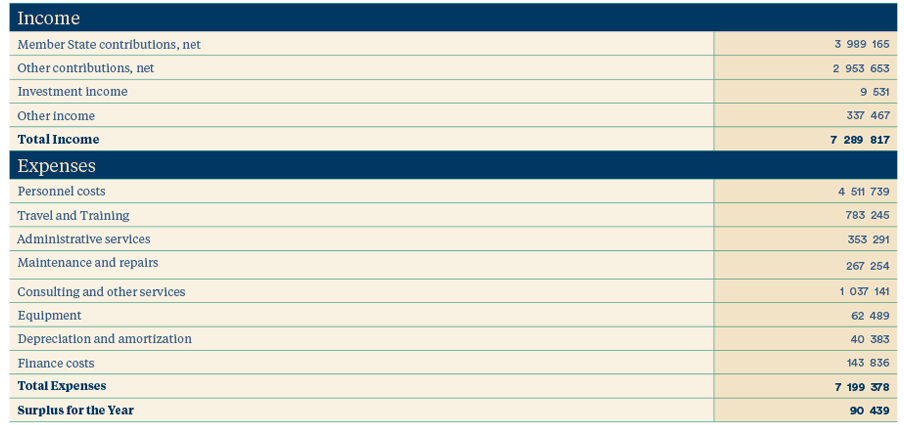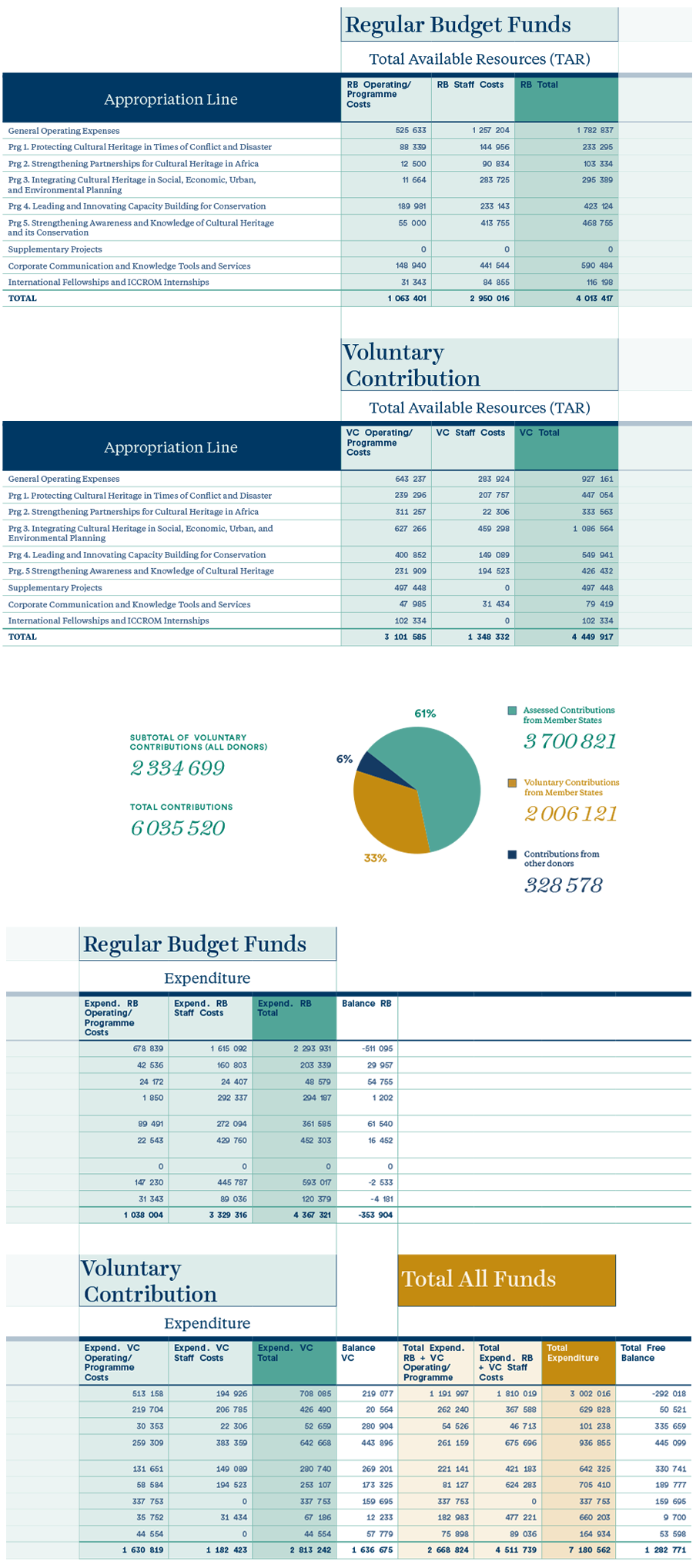|
Course Title |
Location |
Date |
Partners and Sponsors |
| 1 |
First Aid to Cultural Heritage (FAC) Ireland |
Dublin, Ireland |
14 – 16 February |
Irish National Committee of
the Blue Shield (INCBS); Heritage Council of Ireland; Dublin Port Authority;
National Museum of Ireland |
| 2 |
20th International Course on Stone Conservation – SC17 |
Mexico City and Campeche, Mexico |
19 March – 18 May |
Instituto Nacional de
Antropología e Historia (INAH); Coordinación Nacional de Conservación del
Patrimonio Cultural (CNCPC); Universidad Nacional Autónoma de México (UNAM) |
| 3 |
18th International Course on Wood Conservation Technology
(ICWCT 2018) |
Oslo, Norway |
9 April – 11 May
online
4 – 29 June on site |
Riksantikvaren – Norwegian Directorate for Cultural
Heritage; Norwegian University of Science and Technology (NTNU) |
| 4 |
Workshop on Risk Management and First Aid Course |
El Obeid and Khartoum, Sudan
|
13 – 15 April |
Prince Claus Fund |
| 5 |
Paper Conservation in Latin America: Meeting East |
Mexico City, Mexico |
28 May – 13 June |
Instituto Nacional de
Antropología e Historia (INAH); Coordinación Nacional de Conservación del
Patrimonio Cultural (CNCPC); National Research Institute for Cultural
Properties of Japan |
| 6 |
RE-ORG Nigeria Evaluation Seminar |
Jos, Nigeria |
4 – 10 June |
Nigerian National
Commission for Museums and Monuments; Ahmadu Bello University and
participating museums; US Ambassadors
Fund for Cultural Preservation |
| 7 |
Chantier École MOSAIKON |
Tipasa, Algeria |
19 June – 18 July |
Directorate-General of
Antiquities, Algeria; Getty Foundation |
| 8 |
First Aid to Cultural Heritage (FAC) Brabant |
Brabant, Netherlands |
6 – 24 August |
Netherlands Commission for
UNESCO; Prince Claus Fund; Smithsonian Institution
|
| 9 |
African Regional Course on People-Nature-Culture (PNC) |
Mosi Oa Tunya/Victoria Falls, Zambia |
14 – 24 August |
African World Heritage
Fund; National Heritage Conservation Commission of Zambia;
Norwegian Ministry of Climate and
Environment; ICOMOS; IUCN; UNESCO World Heritage Centre |
| 10 |
FAC Leadership Workshop |
Brabant, Netherlands |
25 – 31 August |
Netherlands Commission for
UNESCO; Prince Claus Fund; Smithsonian Institution
|
| 11 |
RE-ORG Chile |
Santiago, Chile |
27 August – 7 September |
National Service for
Cultural Heritage, Chile; National Centre of Conservation and Restoration
(CNCR); National Sub-Directorate of Museums (SNM) |
| 12 |
Japanese Paper Course (JPC)
|
Tokyo, Japan |
27 August – 14 September |
Tokyo National Research
Institute for Cultural Properties |
| 13 |
Disaster Risk Management of Cultural Heritage |
Kyoto and Kobe, Japan |
29 August – 20 September |
Ritsumeikan University;
Japanese National Institutes for Cultural Heritage; ICOMOS; UNESCO
|
| 14 |
Advisory Bodies Networking Activity |
Rome and Tivoli, Italy |
4 – 6 September |
Norwegian Ministry of
Climate and Environment; IUCN; ICOMOS; Villa Adriana and Villa d’Este
Management Office |
| 15 |
Investigation, Preservation and Management of
Archaeological Sites and Remains |
Nara, Japan |
4 September – 4 October |
Agency for Cultural
Affairs, Japan; ACCU Nara; National Research Institute for Cultural
Properties in Tokyo and Nara; Japan Consortium for International Cooperation
in Cultural Heritage; Japanese National Commission for UNESCO, Nara
Prefectural Government; Nara City Government |
| 16 |
Practical Training Workshops at the Khalifa House Museum,
Omdurman |
Omdurman and Khartoum, Sudan |
17 September
– 17 October |
British Council; Department
for Digital, Culture, Media and Sport; Centre for Heritage Studies, McDonald
Institute for Archaeological Research, University of Cambridge; Mallinson
Architects; National Corporation for Antiquities and Museums in Sudan (NCAM) |
| 17 |
Capacity Building Workshop on Nature-Culture Linkages
(CBWNCL) in Heritage Conservation in Asia and the Pacific: Disasters and
Resilience |
Tsukuba, Japan |
21 September – 1 October |
UNESCO Chair on
Nature-Culture Linkages in Heritage Conservation, University of Tsukuba;
ICOMOS; IUCN; UNESCO World Heritage Centre |
| 18 |
World Heritage Procedures for Nordic-Baltic Experts |
Bergen, Norway |
24 – 28 September |
ICOMOS; IUCN; UNESCO World
Heritage Centre; Norwegian Ministry of Climate and Environment and other
partners |
| 19 |
Kerala Heritage Rescue Initiative
|
Ernakulam, India |
8 – 11 October |
Government of Kerala;
ICOMOS India |
| 20 |
Course on Management and Monitoring of World Heritage
Sites |
Macao, China |
8 – 19 October 2018 |
National Cultural Heritage
Administration (NCHA); Secretary for Social Affairs and Culture of the
Government of Macao SAR; ICOMOS China; Institute for Tourism Studies of Macao |
| 21 |
RE-ORG Lisboa International Workshop |
Lisbon, Portugal |
15 – 26 October |
Empresa de Gestão de
Equipamentos e Animação Cultural, E.M. (EGEAC); Museum of Lisbon; Santa Casa
da Misericórdia de Lisboa |
| 22 |
Course on Impact Assessments for Heritage |
Shanghai and Jiangsu Zhenze, China
|
15 – 26 October |
World Heritage Institute of
Training and Research for the Asia and the Pacific Region under the auspices
of UNESCO, Shanghai Centre (WHITR-AP Shanghai); ICOMOS; IUCN; UNESCO World
Heritage Centre; Norwegian Ministry of Climate and Environment and other partners |
| 23 |
First Aid to Cultural Heritage (FAC) Mali |
Bamako, Mali |
12 – 30 November |
Ministry of Culture, Mali;
National Museum of Mali; National Library; Malian Red Cross; National Army of
Mali; Civil Protection, International School for Maintaining Peace;
International Committee of the Red Cross; UN Peacekeeping Mission in Mali
(MINUSMA) |
| 24 |
CollAsia International Course on Conserving Photographic
and Archival Collections |
Ho Chi Minh City, Viet Nam |
22 November – 13 December |
Ho Chi Minh City University
of Vietnam; Southern Institute of Social Sciences; Ho Chi Minh City Institute
for Development Studies; Ho Chi Minh City University of Culture; Korean
Cultural Heritage Administration (CHA) |
| 25 |
RE-ORG Kuwait |
Kuwait City, Kuwait |
25 November – 7 December
|
Kuwait National Museum |
| 26 |
RE-ORG Albania |
Tirana, Albania |
5 – 13 November |
National History Museum of
Albania; Ministry of Culture of Albania;
International Council of Museums Southeast Europe Alliance (ICOM SEE) |
| 27 |
Workshops on Enhancing the Social and Cultural Role of
Community Museums in Western Sudan |
Omdurman, El Obeid and Nyala, Sudan |
17 – 26 November |
British Council; Department
for Digital, Culture, Media and Sport; National Corporation for Antiquities
and Museums in Sudan (NCAM); Centre for Heritage Studies, McDonald Institute
for Archaeological Research, University of Cambridge; Mallinson Architects |
| 28 |
Course on Heritage Impact Assessments |
Kotor, Montenegro |
3 – 6 December |
National Commission of
Montenegro for UNESCO; UNESCO World Heritage International Assistance Fund;
UNESCO Regional Bureau for Science and Culture in Europe |


















